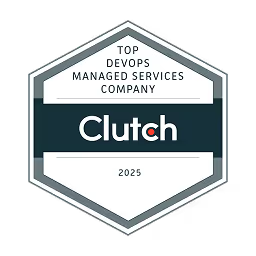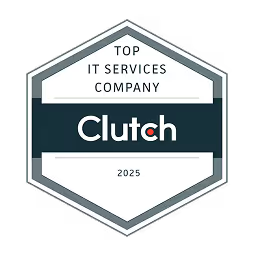Custom dApp development services


Our dApp development services: Trusted by partners, rated by clients




.avif)
.avif)
.avif)
.avif)
.avif)
.avif)
.avif)
.avif)

.avif)
.avif)
.avif)
.avif)
.avif)
.avif)
.avif)
.avif)

.avif)
.avif)
.avif)
.avif)
.avif)
.avif)
.avif)
.avif)


What are dApp development services?
DApp development services focus on creating decentralized applications using blockchain technology. These services range from smart contract development and auditing to user interface design, integrating blockchain-specific features such as tokenization and decentralized finance (DeFi) functionalities. They cater to various sectors, including finance, supply chain, and gaming, leveraging platforms like Ethereum, Binance Smart Chain, and others to create applications that operate autonomously, resist censorship, and reduce reliance on central authorities.

What is a dApp?
A dApp, or decentralized application, operates on a blockchain or peer-to-peer network, distinct from traditional applications running on a single system. Leveraging smart contracts, especially prevalent on platforms like Ethereum, dApps offer a wide range of functions without a central authority.
Contrasting examples include Uniswap, a decentralized exchange allowing token swaps without a central entity, and CryptoKitties, a blockchain-based game where players breed and trade digital cats. Due to their decentralized nature, these applications provide transparency, resistance to censorship, and reduced downtime.

What services do dApp development companies offer?
- MVP consulting: Analysis of market trends, stakeholder identification, defining technical components, and blockchain platform selection tailored to client requirements.
- UI design for dApp: Development of interactive, user-friendly interfaces for the final products.
- DEX development: Building scalable, customized DEX platforms supporting peer-to-peer transactions.
- Smart contract development: Writing, testing, and deploying contracts on blockchain protocols like Ethereum, Polkadot, and Polygon.
- Decentralized gaming apps: Developing gaming dApps supporting play-to-earn models.
- dApp porting: Assistance in migrating applications to different blockchain platforms.
- dApp upgrade services: Ensuring uninterrupted business operations and enhanced UX.
- Technology stack usage: Utilizing front-end development tools, backend technologies, and wallets like Angular, React, Solidity, Node.js, Metamask, and Trust.
- dApp development platforms: Expertise across multiple blockchain platforms such as Ethereum, Solana, Polygon, Polkadot, Avalanche, Stellar, Cardano, and more.

What blockchain platforms are commonly used for dApp development?
According to the purposes of use, the most popular blockchain platforms can be grouped into the following packs:
- General purpose and smart contracts mechanics: Ethereum, Solana, BNB Chain, Tron, Polygon, Cardano, Quorum, Truffle Suite, Hardhat, Foundry, Brownie
- Financial transactions and DeFi: Ripple
- B2B applications: Corda
But each dApp project is unique, and may need a special blockchain to run. For example, there is an Ethereum dApps development company specializing in only this blockchain.

How do I choose a dApp development service provider?
- Evaluate technical expertise and past projects
Look for a dApps development company with a strong portfolio of successful projects, ideally ones that align with your project's domain or technology stack. Additionally, check their proficiency in relevant blockchain platforms like Ethereum, Binance Smart Chain, or Solana and their ability to integrate with various smart contracts and decentralized protocols. Evaluating GitHub repositories or case studies can give insights into their technical depth and problem-solving skills. - Consider communication and post-deployment support
Choose a provider of the dApp blockchain application development who demonstrates clear, transparent communication practices and a structured project management approach. This can be assessed through initial interactions, proposal clarity, and feedback from previous clients. Additionally, ensure they offer post-deployment services like maintenance, updates, and troubleshooting, which are critical for the long-term success of your dApp.
dApp development company, that offers comprehensive post-launch support, will commit to the longevity and success of your project.

What's the difference between centralized and decentralized application development?
Centralized application development focuses on creating software where the control and data processing are managed by a single server or a cluster of servers, often owned by a single entity. This model simplifies governance and updates but poses risks like single points of failure and potential for data breaches.
DApp development, on the other hand, spreads control across multiple nodes in a network, often using blockchain technology. This enhances security and resistance to censorship, as there is no single point of control or failure. However, it can complicate governance and make updates more challenging.

Is blockchain development necessary for dApp development?
Blockchain development is integral to dApp development, as dApps operate on a blockchain or peer-to-peer network, distinct from traditional apps that run on centralized servers. For example, a dApp for supply chain management would utilize blockchain to record and track the provenance and journey of goods, ensuring data integrity and reducing fraud.
Another example is finance, where blockchain-based dApps enable peer-to-peer transactions and smart contracts for lending and borrowing without intermediaries. However, blockchain is not the only technology used in dApps; other technologies, such as IPFS for decentralized storage and off-chain computation methods, can also play a crucial role.

What industries benefit from dApp development services?
dApps development services can significantly benefit the finance, healthcare, and supply chain management industries. In finance, dApps provide secure, transparent, decentralized solutions for transactions and asset management, exemplified by decentralized finance (DeFi) platforms. In healthcare, they ensure the integrity and confidentiality of patient data, facilitating secure data sharing across institutions.
For supply chain management, dApps offer transparent and tamper-proof tracking of goods from production to delivery, enhancing efficiency and trust in supply chains. These applications present new opportunities for industry innovation, streamlining processes, and fostering trust through decentralized and secure frameworks.








-min.webp)

-min.webp)
-min.webp)
-min.webp)

-min.webp)
-min.webp)
-min.webp)
-min.webp)
-min.webp)
-min.webp)
-min.webp)
.webp)











